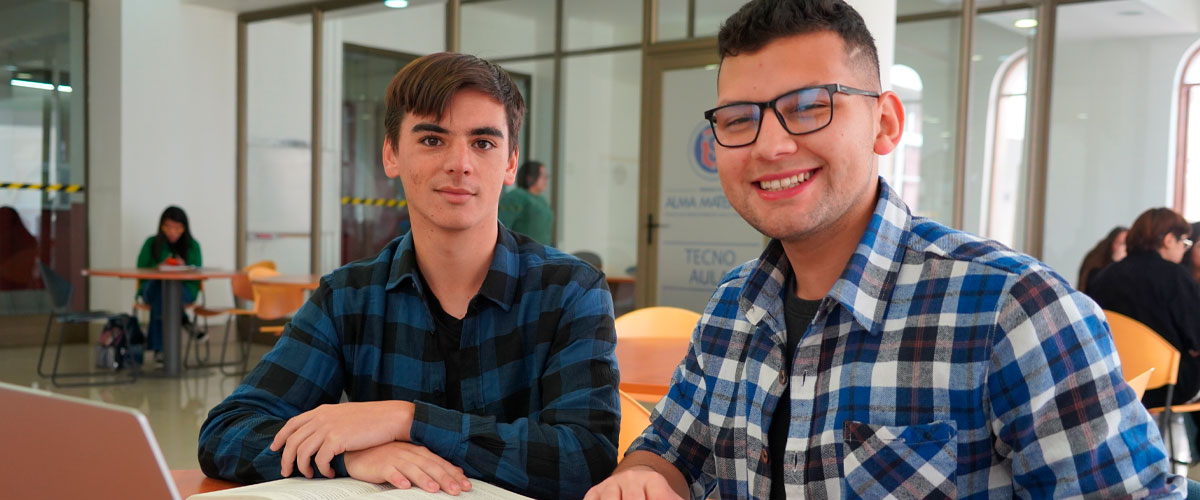- News
Accompaniment from the first day: ULS students receive support throughout their university years

From an academic, psychoeducational and emotional point of view, the University of La Serena supports its students in leveling and professional training throughout their careers and until the moment of graduation.
Nearly 30% of the undergraduate enrollment at the University of La Serena receives personalized support from the institution year after year, which corresponds to an average of 2.200 students annually. This support not only aims to improve the academic performance of students, but also focuses on emotional well-being, creating a supportive and recreational environment.
This work is carried out by the Student Support and Monitoring Office (OAME), dependent on the Academic Vice-Rector's Office, which operates through the strategic axes of Inclusive Access, Comprehensive and Intermediate Support, Adportas Egreso ULS and Process Management and Monitoring.
The rector of the University of La Serena, Dr. Luperfina Rojas Escobar, highlighted that the center of the institutional work is precisely its students "their quality of life is a priority for us, and that is why we work to accompany them from the moment they enroll until when they graduate, and even after that when they begin their career path.”
The authority added that “we are with them in the leveling they require when they enter, we emphasize the emotional well-being of the students, who, coming from diverse contexts, present different realities. Our support programs can be adapted to the specific needs of each one, this includes support for different academic, geographical and cultural backgrounds, guaranteeing that everyone has equal opportunities for success,” emphasized the rector.
Furthermore, he added that “it is important for our students to have extra curricular activities and, in that sense, the institution offers sports, art, music and even a circus workshops, which allows us to enrich university life and contribute to comprehensive training.” of ULS students".
Since its creation, the OAME has managed to monitor and accompany an average of 2.200 undergraduate students, a figure that increases year after year. Their work focuses on access strategies and academic and psychoeducational support to contribute to the induction, training path and timely graduation/degree of students.
The coordinator of the OAME, Claudia Toledo Robles, explained that upon entry of the students, three diagnostic evaluations are carried out in Mathematics, Reading Comprehension and Autonomous Learning, with which the academic leveling process begins. They are also accompanied upon entry with induction and initial strengthening activities to promote early attachment, through workshops and group activities. Starting in the second year, students have the possibility of participating in the comprehensive training provided by the School of Tutors and supporting their first-year peers, thus strengthening the cycle that allows for constant support of new students.
In this regard, Toledo indicated that “we use a preventive model, which consists of several levels of support, managing to cover everything related to university culture and generate strategies articulated with key agents in the university. At another level, we address what is related to integrated university environments that are much more specific. We also focus on the comprehensive support of the student with professionals from both disciplinary areas and psychologists, in the psychoeducational aspect, to address all those aspects that impact learning, and finally a more specific point is personalized support, which is undoubtedly very important. , since we want to strengthen the most preventive aspects of our office's support model.”
In matters of inclusion, he detailed the mechanism used to provide support to students with disabilities “through the PACE and Learn ULS Programs we generate articulations with the General Area of Coordination of Rights and Duties for Comprehensive Training (AGDDFI). Through tutors we support those who have special educational needs, in conjunction with the Inclusion and Disability area.”
Ricardo Pastén, a final year student studying Mathematics and Physics Pedagogy, has been accompanied by the Inclusion and Disability area throughout his university life that began in 2020. Along these lines, he says that it has been a very nice experience, “ It is like receiving the support of the family that in the end will support me, I have participated in many things and they have opened many doors for me, they have been attentive to me, my career and they have done whatever it takes to help me and they have been like a guiding path, I have participated in workshops and they have not left me aside and that has made me see that the program has been important in all the years that I have been at the university. They accompanied me even during the pandemic, they informed me about personal relationships, self-care.”
